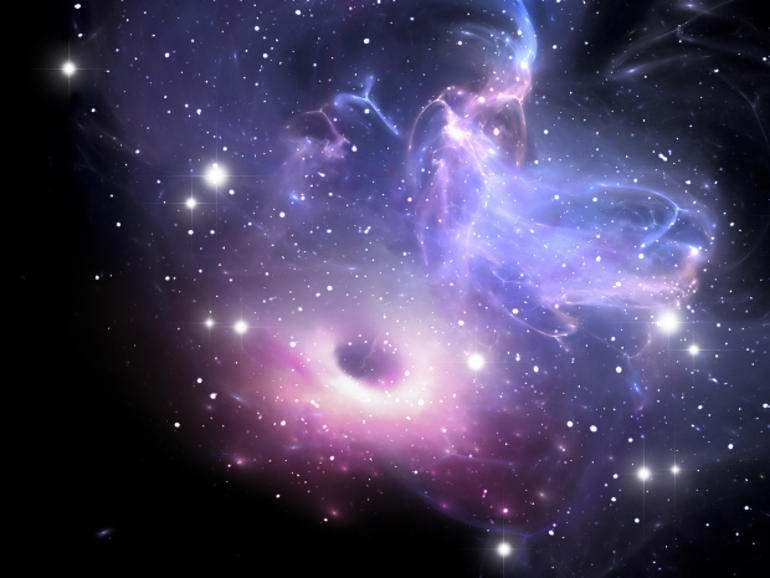Ramesh Narayan, PhD, the Thomas Dudley Cabot Professor of the Natural Sciences at Harvard University, will deliver the seventh annual Robert M. Walker Distinguished Lecture at 7 p.m. Thursday, Oct. 23.
The talk, hosted by the McDonnell Center for the Space Sciences, will take place in Whitaker Hall, Room 100, on the Danforth Campus of Washington University in St. Louis. It is free and open to the public
Narayan, who has been a professor at Harvard University for 20 years, serving as chair of Harvard’s Department of Astronomy from 1997 to 2000, has made many contributions to astrophysics. In the area of black holes, he has obtained strong evidence for the existence of the “event horizon,” the one-way membrane which “vacuums up” energy from its surroundings. He also has developed methods to measure the spin parameters of black holes using observations from major ground- and space-based telescopes, including the Chandra X-ray Observatory.
A black hole is an object whose gravitational pull is so strong that nothing — not even light — can escape from its interior. The concept of such an object is so bizarre, Narayan said, that one feels that something in physics ought to prevent the formation of such objects. Yet they exist.
The universe contains countless black holes; some that weigh only about 10 times the mass of the Sun and others as much as a billion times that mass. Even though light cannot escape from inside a black hole, gas flowing into the hole does emit very intense radio waves, light, X-rays and gamma rays.
Astronomers study such radiation on a daily basis with both ground-and space-based telescopes. Narayan will describe the kinds of black holes that have been discovered, their observational manifestations, and what they teach us about the formation of such compact objects in nature.
The McDonnell Center, in Arts & Sciences, is sponsoring the lecture as part of the Robert M. Walker Distinguished Lecture Series in memory of Robert M. Walker, PhD, the center’s inaugural director from 1975 to 1999.
Walker was a pioneering physicist who shaped research in the space sciences worldwide. The Walker lecture series was established by Ramanath Cowsik, PhD, the James S. McDonnell Professor of Space Sciences and director of the McDonnell Center, in 2008.
The McDonnell Center, established in 1975 through a gift from aerospace pioneer James S. McDonnell, is a consortium of Washington University faculty, research staff and students primarily from the departments of Earth and Planetary Sciences and Physics, both in Arts & Sciences, who are working on the cutting edge of space research.
As part of the lecture series, Narayan also will deliver a colloquium, titled “Astrophysical Black Holes,” at 4 p.m. Wednesday, Oct. 22, in Crow Hall, Room 204. In the colloquium, he will speak at a more technical level about the problems of relating in spin and mass to observational manifestations of black holes.
Refreshments will precede the colloquium, which is also free and open to the public.
For more information on the talks, contact Trecia Stumbaugh at trecia@wustl.edu or 314-935-5332.
